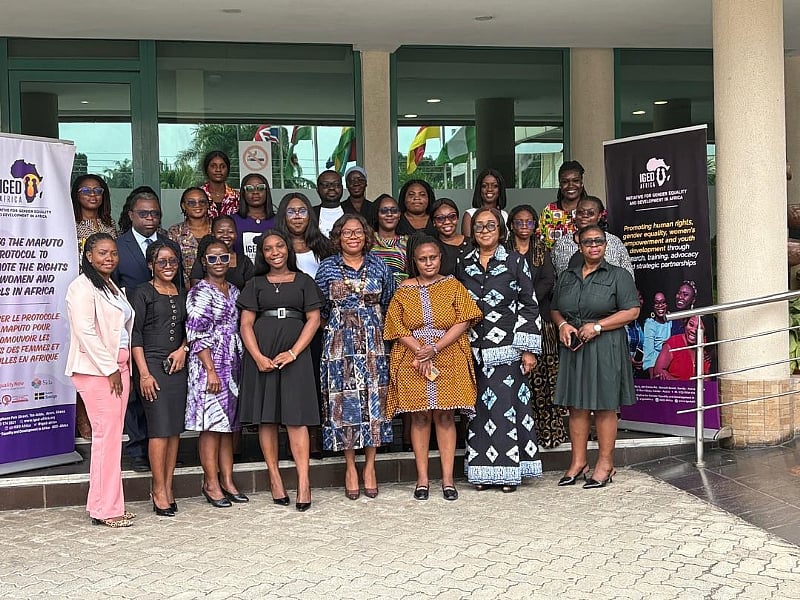Paragraph 1: The Imperative for Family Law Reform in Ghana
Ghana, a nation striving for gender equality and inclusive development, recognizes the urgent need to reform its family laws. These laws, which govern marriage, inheritance, and property ownership, often perpetuate systemic inequalities that disproportionately affect women. The existing legal framework, while aiming to protect all citizens, falls short in addressing the unique challenges faced by women, particularly in customary and religious contexts. The passage of the Affirmative Action (Gender Equity) Act, 2024, marked a significant milestone, yet substantial work remains to fully realize women’s rights. This includes the crucial passage and implementation of the Spousal Property Rights Bill and the Intestate Succession Amendment Bill, both of which have languished in legislative limbo for far too long.
Paragraph 2: Galvanizing Action for Legal Change
Recognizing the critical juncture in Ghana’s pursuit of gender equality, civil society organizations, legal experts, and women’s rights advocates convened a two-day workshop in Accra. Organized by the Initiative for Gender Equality and Development in Africa (IGED-Africa), in collaboration with Equality Now and the Solidarity of African Women’s Rights Network (SOAWR), the workshop served as a platform to consolidate efforts, strategize for future advocacy, and build stronger coalitions. The workshop emphasized that family law reform is not merely a technical legal matter, but a fundamental human rights issue that impacts the lives and dignity of all Ghanaians. The participants recognized the need for a multi-pronged approach, encompassing legislative reform, public awareness campaigns, and robust implementation mechanisms.
Paragraph 3: Addressing Legal Gaps and Constitutional Obligations
A key focus of the workshop was addressing the glaring discrepancies between Ghana’s constitutional guarantees and the realities faced by women in matters of family law. Article 22 of the 1993 Constitution mandates Parliament to enact legislation on spousal property rights “as soon as practicable.” Yet, decades later, this constitutional obligation remains unfulfilled, leaving women vulnerable and their contributions to marital assets often unrecognized. Similarly, gaps in intestate succession laws continue to disadvantage widows and children, especially in cases where customary practices override statutory protections. Participants stressed the urgency of aligning national legislation with constitutional principles and international human rights standards.
Paragraph 4: Harnessing the Power of Collaboration and Shared Experience
The Accra workshop provided a valuable forum for sharing experiences, best practices, and lessons learned from various advocacy initiatives. Participants, representing diverse backgrounds and areas of expertise, engaged in robust discussions on the challenges and opportunities in advancing family law reform. They highlighted the importance of unified advocacy, drawing inspiration from the successful campaign that led to the passage of the Affirmative Action Act. The workshop also underscored the significance of collaboration across civil society organizations, legal professionals, and government agencies to create a cohesive and impactful movement for change.
Paragraph 5: Confronting Resistance and Building Momentum
Recognizing that legal reform is not without its challenges, participants addressed the persistent resistance to change, often rooted in deeply ingrained social norms and cultural practices. They explored strategies to counter these obstacles, including public education campaigns to raise awareness about women’s rights and the benefits of gender-equitable laws. Discussions also focused on the need to engage with traditional and religious leaders, who often play influential roles in shaping community perceptions and practices related to marriage, inheritance, and property ownership. The workshop emphasized the importance of framing family law reform not solely as a legal imperative, but as a matter of social justice and national development.
Paragraph 6: A Roadmap for Action and a Renewed Commitment
The Accra workshop concluded with a renewed sense of purpose and a commitment to translate discussions into concrete action. Participants identified key advocacy priorities, including the passage of the Spousal Property Rights Bill and the Intestate Succession Amendment Bill. They formulated actionable strategies to push for legislative progress and ensure effective implementation of existing laws. The workshop also reinforced the importance of engaging with regional and international mechanisms, such as the Maputo Protocol, to uphold Ghana’s commitments to gender equality and women’s rights. This gathering of stakeholders served as a vital step towards a fairer and more inclusive legal system in Ghana, reaffirming that family law reform is not a peripheral issue, but a central component of national progress and the fulfillment of fundamental human rights.














